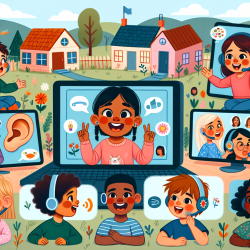Introduction
In the digital age, cyberbullying has emerged as a significant public health concern, impacting adolescents' mental health worldwide. A recent study titled "Cyberbullying victimisation and internalising and externalising problems among adolescents: the moderating role of parent–child relationship and child's sex" sheds light on the complex dynamics between cyberbullying, mental health, and the protective role of parent-child relationships. This blog aims to guide practitioners in utilizing these insights to enhance their intervention strategies and improve outcomes for adolescents.
Understanding the Research
The study, conducted by Sampasa-Kanyinga et al., utilized data from the 2013 Ontario Student Drug Use and Health Survey, analyzing responses from 5,478 students aged 11-20. The research highlights the strong association between cyberbullying victimization and various mental health issues, including psychological distress, suicidal ideation, and substance use. Notably, the study found that the quality of the parent-child relationship and the child's sex significantly moderated these associations.
Key Findings
- Cyberbullying victimization was linked to poor self-rated mental health, psychological distress, suicidal thoughts, and substance use.
- A positive parent-child relationship can buffer the negative effects of cyberbullying, particularly in males.
- Females showed higher vulnerability to psychological distress from cyberbullying, regardless of their relationship with parents.
Implications for Practitioners
Practitioners working with adolescents can leverage these findings to tailor their approaches. Here are some actionable steps:
- Enhance Parent-Child Communication: Encourage open dialogues between parents and children. Workshops and counseling sessions can equip parents with skills to foster supportive environments.
- Focus on Gender-Specific Interventions: Recognize that females may require different coping strategies due to their heightened vulnerability to distress from cyberbullying.
- Promote Family-Centered Approaches: Integrate family dynamics into therapy sessions to address the root causes of distress and strengthen familial bonds.
Encouraging Further Research
While this study provides valuable insights, it also underscores the need for further research. Longitudinal studies could explore the long-term effects of cyberbullying and the evolving role of family dynamics. Practitioners are encouraged to contribute to this growing body of knowledge by documenting their experiences and outcomes in clinical settings.
Conclusion
Cyberbullying is a multifaceted issue that requires a comprehensive approach. By understanding the moderating role of parent-child relationships, practitioners can develop more effective strategies to support adolescents. The journey towards better mental health outcomes starts with informed, data-driven decisions.
To read the original research paper, please follow this link: Cyberbullying victimisation and internalising and externalising problems among adolescents: the moderating role of parent–child relationship and child's sex.










